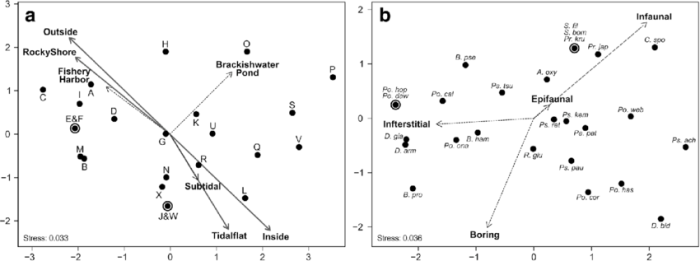Embarking on the intriguing journey of the Americanizing of Pau Tsu, we delve into a captivating tale of cultural transformation, economic shifts, and political influences. This process, shaped by American missionaries and businessmen, left an indelible mark on Pau Tsu, reshaping its social fabric, economy, and governance.
As American values and beliefs took root, Pau Tsu’s traditions and customs underwent a metamorphosis, creating a unique blend of East and West. The region’s economy flourished under American investments, while traditional industries faced challenges.
Historical Context

The Americanizing of Pau Tsu, now known as Brownsville, Texas, was a gradual process that occurred over several decades during the late 19th and early 20th centuries.
The arrival of American missionaries and businessmen in the Rio Grande Valley in the mid-1800s marked the beginning of this transformation. These individuals established schools, churches, and businesses, introducing American culture and values to the local population.
Role of American Missionaries
- Established schools and churches, providing education and religious instruction.
- Promoted American values and customs through their teachings and interactions with the community.
- Played a key role in the establishment of Brownsville as a major center of commerce and trade.
Role of American Businessmen
- Invested in the local economy, establishing businesses and industries.
- Brought American goods and services to the region, introducing new technologies and products.
- Contributed to the growth and development of Brownsville as a modern city.
Timeline of Key Events
- 1848: Treaty of Guadalupe Hidalgo ends the Mexican-American War and establishes the Rio Grande as the border between the United States and Mexico.
- 1850s: American missionaries and businessmen begin arriving in the Rio Grande Valley.
- 1865: Brownsville is incorporated as a city.
- 1880s: The railroad reaches Brownsville, connecting it to major markets in the United States.
- 1900: Brownsville becomes a major center of commerce and trade.
Cultural Transformation

The American influence on Pau Tsu resulted in significant cultural transformations. Social customs and traditions underwent profound changes as the local population embraced American values and beliefs.
Changing Social Norms
- Individualism and Autonomy:American emphasis on individualism and personal autonomy influenced Pau Tsu society. Traditional communal values gradually gave way to a focus on personal achievement and self-reliance.
- Gender Roles:American values regarding gender equality had a notable impact on Pau Tsu. Women gained increased social and economic opportunities, challenging traditional gender roles and expectations.
- Family Structure:American family models influenced the local family structure. The extended family system, once the cornerstone of Pau Tsu society, began to give way to smaller, nuclear families.
Adoption of American Values
American values and beliefs were widely adopted by the people of Pau Tsu. These included:
- Democracy and Human Rights:American ideals of democracy and human rights resonated with the people of Pau Tsu, leading to the establishment of democratic institutions and a greater emphasis on individual rights.
- Economic Liberalism:American economic principles of free market capitalism and private enterprise were embraced by Pau Tsu, resulting in a shift towards a more market-oriented economy.
li> Scientific and Technological Progress:American emphasis on scientific and technological advancement influenced Pau Tsu society, leading to the adoption of modern technologies and educational reforms.
Economic Impact
The Americanizing of Pau Tsu brought significant economic changes to the region. American businesses and investments played a major role in shaping the local economy, leading to both opportunities and challenges for traditional industries and livelihoods.
One of the most significant economic impacts was the establishment of American businesses in Pau Tsu. These businesses introduced new technologies, products, and services, which stimulated economic growth and created new employment opportunities. For example, the establishment of American cotton mills led to a boom in the textile industry, providing jobs for thousands of local workers.
The Americanization of pau tsu is a fascinating process that has been influenced by a variety of factors. To learn more about this topic and the broader context of American history, check out the APUSH Unit 9 Progress Check . This resource provides a comprehensive overview of key events and concepts, helping you deepen your understanding of the Americanization of pau tsu and its significance in shaping the American identity.
Impact on Traditional Industries, The americanizing of pau tsu
However, the Americanizing of Pau Tsu also had negative consequences for traditional industries. The introduction of American goods and technologies led to increased competition for local businesses, which often struggled to compete with the larger and more efficient American companies.
As a result, many traditional industries declined, and many local businesses were forced to close.
Political Influence

The Americanizing of Pau Tsu brought significant political implications to the region. American political ideas and institutions were introduced, leading to a shift in local governance and power structures.
American Political Influence
- Introduction of democratic principles, such as popular sovereignty and the rule of law.
- Establishment of a representative government with elected officials and a separation of powers.
- Adoption of the American Constitution as a model for local governance.
Impact on Local Governance
These American influences had a profound impact on local governance. The introduction of democratic principles led to a more participatory and accountable political system. The establishment of a representative government provided a platform for citizens to have a say in their own affairs.
The separation of powers prevented the concentration of power in the hands of a single individual or group.
Shift in Power Structures
The Americanizing of Pau Tsu also led to a shift in power structures. Traditional local elites were gradually replaced by individuals with more democratic and progressive ideals. This shift in power led to a more open and inclusive political system that better represented the interests of the people.
Resistance and Assimilation

The Americanization of Pau Tsu was met with varying degrees of resistance and assimilation. Some individuals and groups actively opposed American influence, while others embraced it. The level of acceptance or rejection of American influence was influenced by factors such as age, education, social class, and personal experiences.
Resistance to Americanization
- Traditionalists: Many older Pau Tsuans clung to their traditional values and customs, resisting the changes brought by Americanization.
- Nationalists: Some Pau Tsuans feared that Americanization would lead to the loss of their cultural identity and national sovereignty.
- Religious leaders: Some religious leaders opposed Americanization, seeing it as a threat to their authority and the traditional beliefs of the Pau Tsuan people.
Assimilation to Americanization
- Younger Pau Tsuans: Younger generations were more likely to embrace American culture, seeing it as a symbol of modernity and progress.
- Educated elite: The educated elite of Pau Tsu were often exposed to American ideas and values through their studies, making them more receptive to Americanization.
- Economic migrants: Many Pau Tsuans who migrated to the United States for economic reasons assimilated into American society to improve their chances of success.
Examples of individuals who resisted Americanization include the traditionalist leader Wong Fei-hungand the nationalist revolutionary Sun Yat-sen. Examples of individuals who embraced Americanization include the educated elite Hu Shiand the economic migrant Wong Kim Ark.
Legacy and Impact: The Americanizing Of Pau Tsu

Americanization in Pau Tsu has left a lasting legacy that continues to shape the region today. American influence is evident in various aspects of Pau Tsu’s culture, economy, and politics.
American values and ideals, such as individualism, democracy, and economic freedom, have become deeply ingrained in Pau Tsu’s society. These values have influenced the region’s political system, which has adopted democratic principles and practices.
Cultural Transformation
Americanization has had a profound impact on Pau Tsu’s cultural landscape. The introduction of American entertainment, media, and fashion has led to the adoption of Western cultural norms and practices.
- American fast food chains have become ubiquitous, offering a convenient and affordable dining option for Pau Tsu residents.
- Hollywood movies and television shows are widely consumed, exposing Pau Tsu citizens to American values and lifestyles.
- Western clothing styles, such as jeans and t-shirts, have become popular among Pau Tsu’s youth.
Economic Impact
Americanization has played a significant role in Pau Tsu’s economic development. American investment and trade have contributed to the region’s economic growth and prosperity.
- American multinational corporations have established a presence in Pau Tsu, providing employment opportunities and access to international markets.
- American technology and innovation have been adopted by Pau Tsu’s businesses, enhancing productivity and efficiency.
- American consumer goods and services are in high demand in Pau Tsu, creating a vibrant consumer market.
Political Influence
Americanization has influenced Pau Tsu’s political landscape. The United States has been a strong supporter of Pau Tsu’s democratic development, providing assistance and guidance.
- American political institutions, such as the two-party system and separation of powers, have served as models for Pau Tsu’s political system.
- American foreign policy has played a role in shaping Pau Tsu’s regional and international relations.
- American military presence in Pau Tsu has contributed to the region’s security and stability.
Essential Questionnaire
What were the key factors driving the Americanizing of Pau Tsu?
American missionaries and businessmen played a significant role in introducing American values and beliefs, while economic opportunities attracted American investments.
How did Americanization impact Pau Tsu’s social customs?
American influence led to changes in traditional practices, such as the adoption of Western clothing and educational systems.
What were the economic consequences of Americanization for Pau Tsu?
American businesses and investments stimulated economic growth, but also posed challenges to traditional industries.